Reflections on a Travel Learning Course to Argentina (3 of 3): An Instructor's Perspective5/11/2015
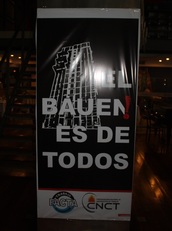 "Bauen belongs to everyone." "Bauen belongs to everyone."
Reclaiming Dignity
When visiting the occupied workplaces, one word that came up over and over was “dignity.” Under the old system, workers were at the mercy of a boss who has total authority. They had to beg for everything—even the wages that were owed to them. During the economic crisis, many owners and managers slashed their wages at will or stopped paying them entirely. At first, workers asked for their back pay, and waited for an answer from the boss; over time, they stopped waiting for answers and did not accept the crumbs they were given. They stopped relying on the manager or authority for answers. Instead, they began taking what they needed and started acting for themselves and their fellow workers. They occupied and reclaimed their workplaces, but in the process, they also reclaimed their dignity. They found both autonomy and solidarity in the new worker cooperatives—and all the workers took immense pride in what they had accomplished. Acting out of Need (Not Ideology) When workers began taking back their factories and other workplaces, they largely did so out of desperation. Unemployment was as high as 50% in some areas, and they perceived no other options (especially for older workers who might have faced other obstacles in finding work elsewhere). They were not acting out of ideology, but out of need. This is consistent with Marx’s conception of historical materialism, which argues that consciousness grows out of lived experience in the material world (rather than ideas shaping our experience). It was only later, after going through the process of taking back a factory and running it themselves, that some of the workers appeared to develop a broader class consciousness and become more political. For those workers, they saw their efforts as part of something larger than themselves, and much more than simply having a job—they were part of a movement to develop another way of living.
Editor’s Note: This is the third and final post in a series on an undergraduate travel learning course, which included traveling to Argentina to study recuperated workplaces and social movements. Travel learning courses are regular semester-long courses that feature two weeks of travel after the semester to examine the issues studied in the course. The first post described the course and how it was developed, and the second post featured the reflections of a student who completed the course.
In Spring 2014, my colleague and I traveled with 12 students to Argentina. We traveled there after completing my seminar on social movements. Our itinerary included visiting several recuperated workplaces and other self-managed worker cooperatives (e.g. a tango orchestra cooperative, a media cooperative), the famous Madres de Plaza de Mayo, a school that provides excellent education to children of a poor neighborhood and operates under the philosophy of Paulo Freire, groups protesting industrial agriculture and tree farming, and several self-sustaining farms, including a farm that uses both indigenous and scientific agricultural knowledge to design some of the most sustainable farming techniques in use today. In this post, I identify several themes from our visits and my experiences traveling with students. 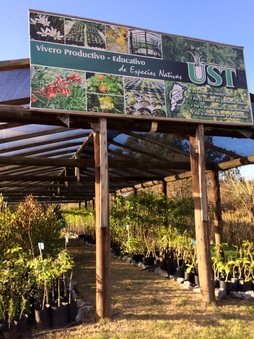
However, because of their precarious legal situation and lack of business expertise, they have not been able to get loans from banks to continue updating and renovating the building, which was originally built in the late 1970s. For privileged students used to staying in popular American chain hotels, the furniture and fixtures, etc., appeared out of date and made them less comfortable. It was imperative that this happen in a learning context so that we can use their feelings of comfort to learn more about the financial reality for worker cooperatives, and their own class privilege in education, travel, and everyday life. The issue of privilege also came up when traveling to and through some low-income neighborhoods, when some students also observed levels of poverty that they had never seen before. In addition to interacting with people within these neighborhoods to learn from them, we also used this opportunity to reflect on students’ own class privilege—for some of our students this proved to be an extremely influential experience.
The Movement Continues The Take was filmed in the years immediately after the 2001 crisis (released in 2004), and I first watched it in 2007. I immediately wondered if this was a movement that could survive. What I found in my research and travels is that many of the occupied workplaces during the economic crisis were still in business and organized as cooperatives, but others have failed. Overall, the movement has remained relatively stable. But while we were in Buenos Aires, we saw additional workplaces that just recently went under occupation. For example, workers had just locked themselves inside a restaurant a few blocks from our hotel and were consulting with other workplaces about the possibilities of running it as a worker cooperative. Some workplaces, including our hotel (Hotel Bauen), are still struggling to obtain legal control. While it remains a small part of the economy, the movement of recuperated workplaces clearly continues in Argentina. Students of Today are Often Cynical Students at my liberal arts university are highly active and engaged in many organizations. I originally mistook this engagement with optimism for social change, but I have come to feel that traditional-aged students today are actually quite skeptical of large-scale social change. I had at least one student that was always looking for the flaws of each of the cooperatives and organizations we visited, and focused on how they were not doing enough or emphasizing that they still had this problem or that problem. To be clear, I do think we should all approach things critically, but it is dangerous when we channel our energies into the critique that we miss what is so amazing about these organizations. It was as if the student was looking for the flaws, so that they could say “Aha! I knew it! This is not a perfect place after all,” thereby confirming his expectations. 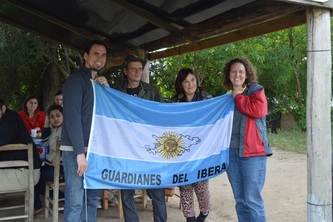 We are presented with a flag from the Guardianes del Ibera. We are presented with a flag from the Guardianes del Ibera.
One reason for this cynicism may be that the American students in the course have grown up in an environment in which government is so divisive and has not accomplished something that is truly inspiring; movements like Occupy that have ocurred in their life times have fizzled out. But I think part of the problem is that we spend so much time teaching students how to critique and deconstruct problems (or at least I have determined I do too much of this!), and not enough time encouraging them to think creatively about designing new institutions to address these problems. In line with critical theory, I think our discipline would be well served if we spent more time focusing on using sociological theories and concepts to design institutions that would address these problems, and proposing pathways for getting us there.
Traveling with Privilege All 12 students on the trip were born in the US, and most were from a relatively privileged economic background. And while issues of economic inequality and injustice were woven throughout the course, these experiences with privilege became apparent during our travel. For example, while most students were very happy with our hotel in Buenos Aires, a couple students (who were well traveled) grumbled about them. We stayed at the famous Hotel Bauen, which has been under worker control for 12 years, but has yet to obtain legal ownership of the hotel and they face regular threats of eviction. Because they are located in the center of Buenos Aires and have meeting rooms, workers that represent the coops and travel to the city usually stay at the hotel; it has therefore become an important space for the movement and where much of the organizing and activism happens. So it was important that we also stay there to learn from them, but also to support the workers and the movement. A Better World is Possible What my class and I experienced was truly inspiring. We learned so much from our hosts, including how to truly live in a way that is egalitarian and in conjunction with the environment, but still to produce effectively for economic markets. This was NOT not top-down socialism but some kind of power exercised by people in a way that does NOT exploit people or the environment. Our individualistic, capitalist way of life is not the only way of living. There are other ways of relating to each other and people are already doing it. A better world is possible. Thank you to our Hosts! From the Hotel Bauen to the Guardianes del Ibera, from La Vaca to Union Solidaria de Trabajadores, our hosts were always very welcoming, generous with their time, and passionate about their work. They cooked us meals and shared their stories. They taught us not only about worker cooperatives, but about Argentinian culture; they taught us alternative ways of living with each other and with our natural environment. I cannot thank them enough but look forward to seeing all of our new friends in Argentina with another group of students in May 2016.
Paul Dean
Paul Dean is co-creator and co-editor of The Sociological Cinema, and an Assistant Professor of Sociology at Ohio Wesleyan University. 7/13/2022 12:51:35 am
Argentina is really an amazing country... have greate places to visit but also ... some not that nice area you should avoid Comments are closed.
|
.
.
Tags
All
|
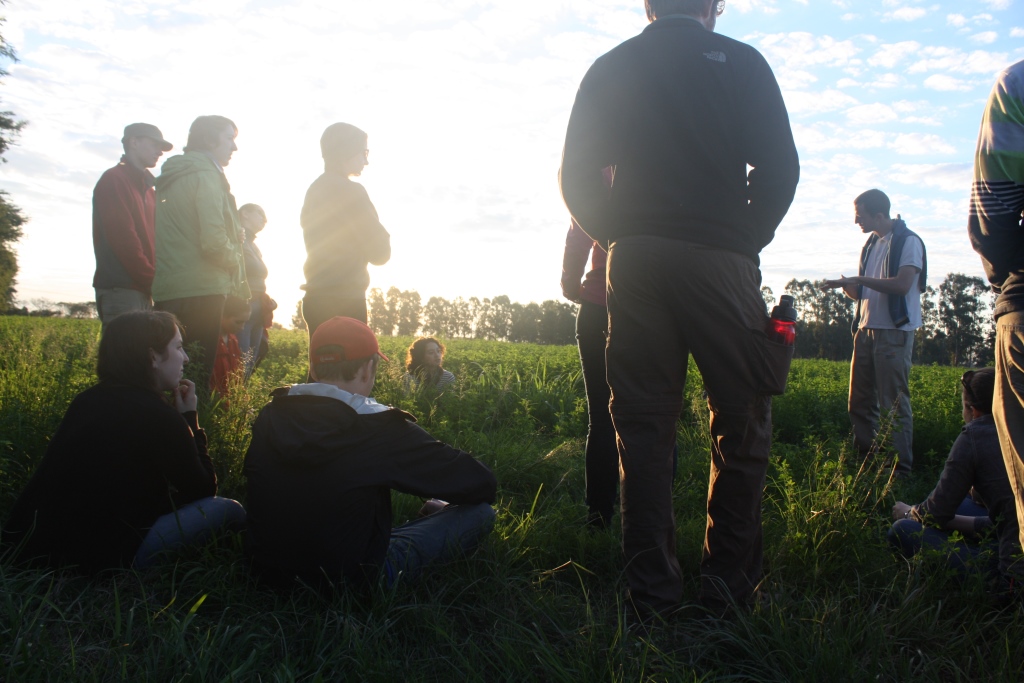
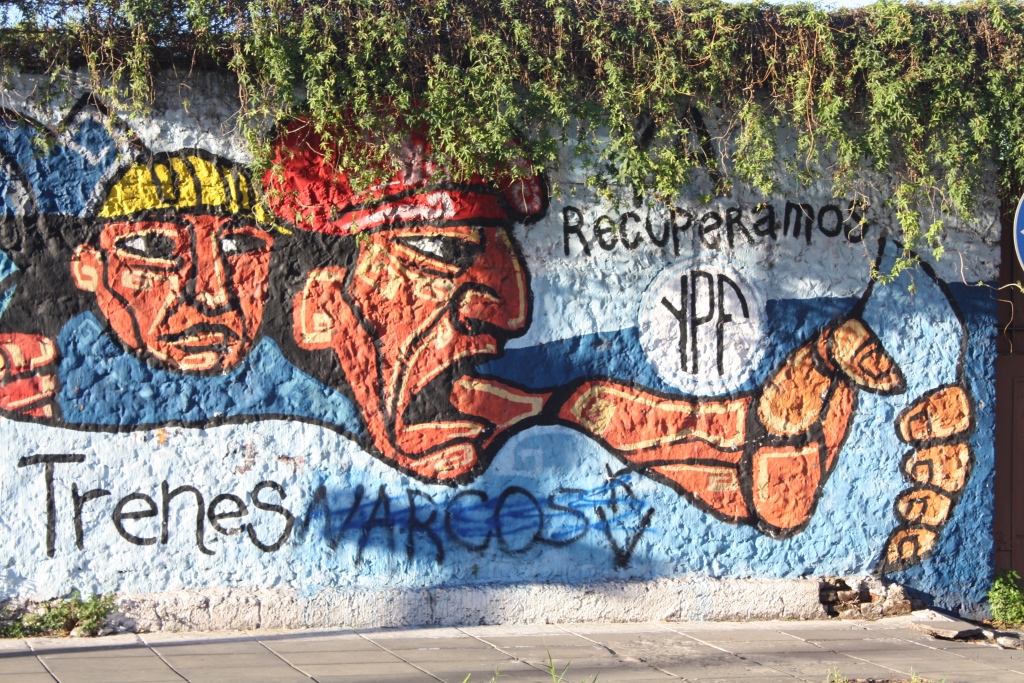
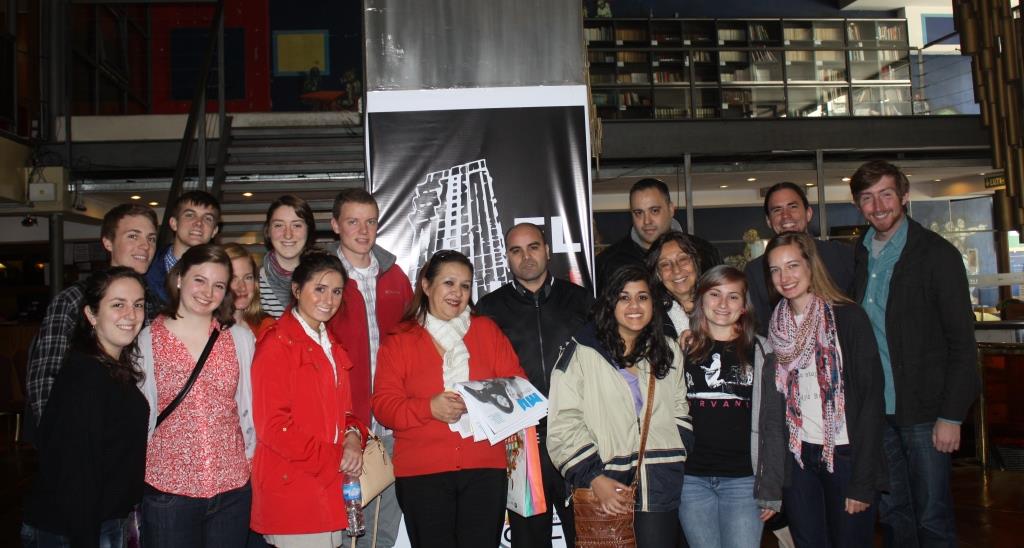
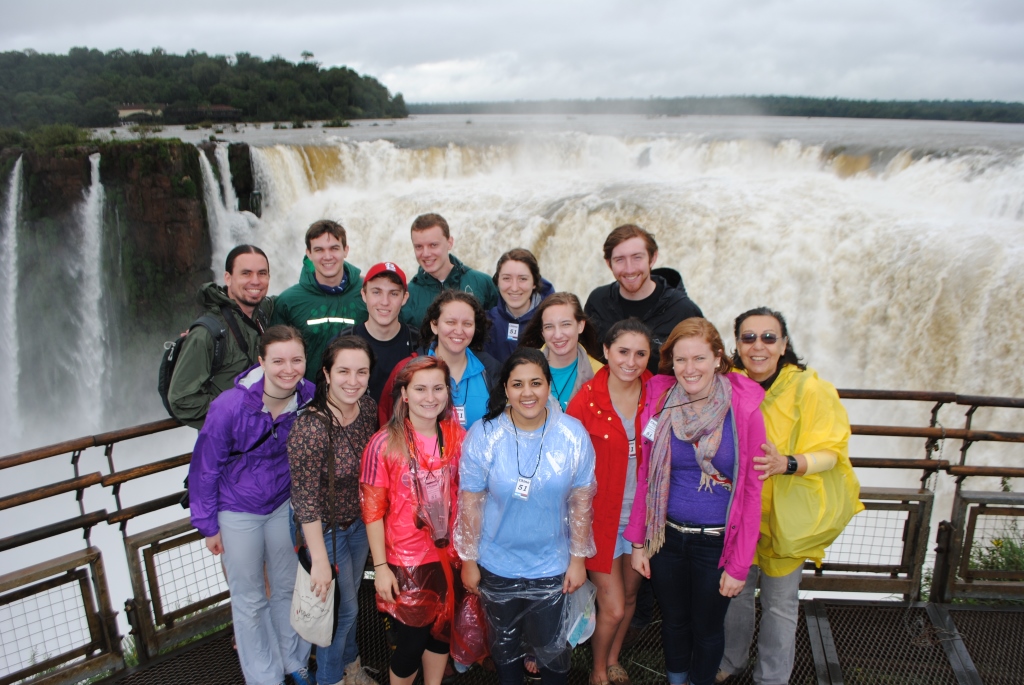

 RSS Feed
RSS Feed